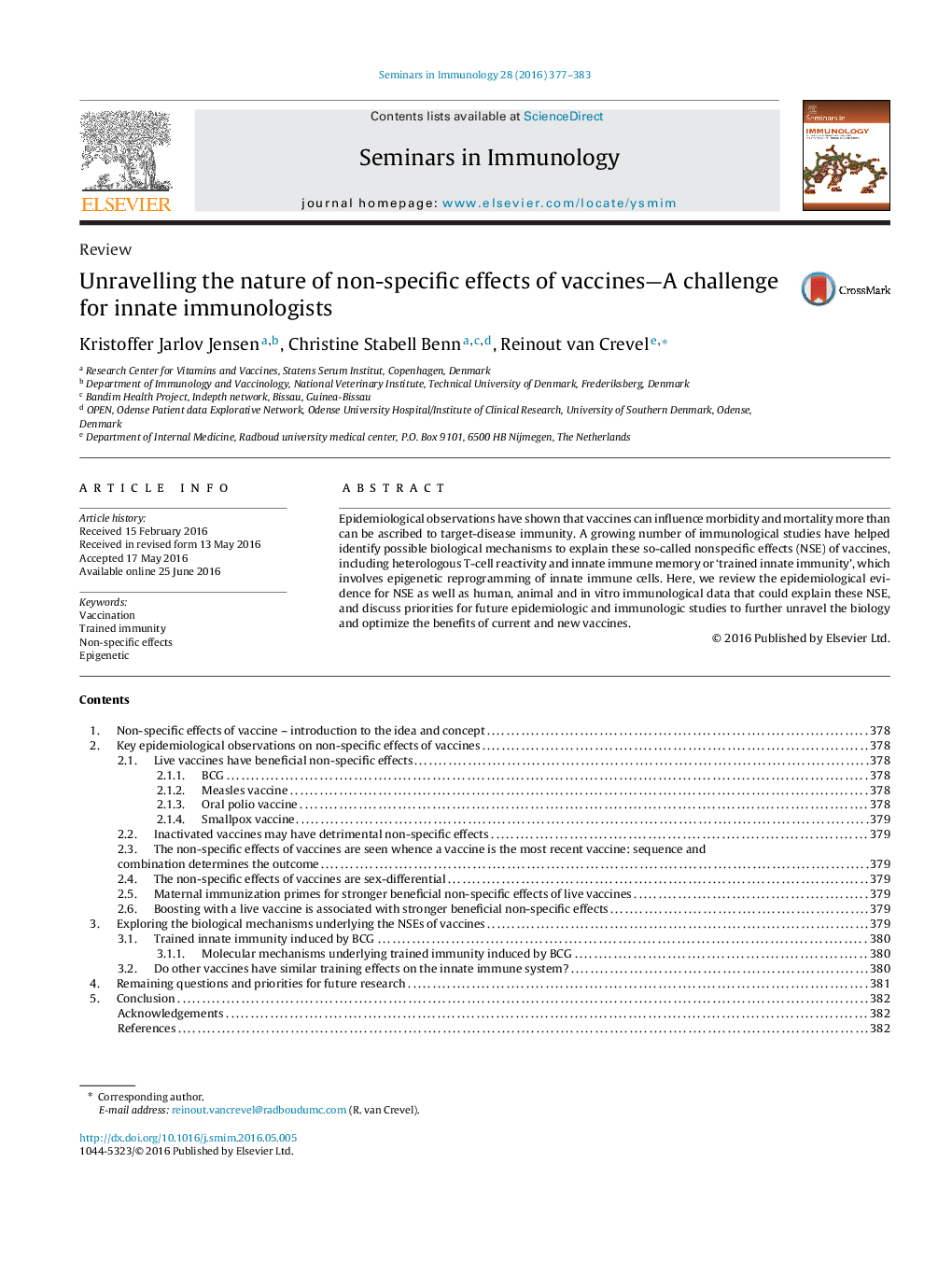| Article ID | Journal | Published Year | Pages | File Type |
|---|---|---|---|---|
| 5670407 | Seminars in Immunology | 2016 | 7 Pages |
â¢Vaccines can have non-specific effects on health, beyond their target disease.â¢Innate immune memory, or 'trained innate immunity', can explain some of these effects.â¢'Trained innate immunity' depends on epigenetic reprogramming of innate immune cells.â¢BCG priming of monocytes in vitro can model 'trained innate immunity' invivo.â¢The biological pathways leading to epigenetic reprogramming need more study.
Epidemiological observations have shown that vaccines can influence morbidity and mortality more than can be ascribed to target-disease immunity. A growing number of immunological studies have helped identify possible biological mechanisms to explain these so-called nonspecific effects (NSE) of vaccines, including heterologous T-cell reactivity and innate immune memory or 'trained innate immunity', which involves epigenetic reprogramming of innate immune cells. Here, we review the epidemiological evidence for NSE as well as human, animal and in vitro immunological data that could explain these NSE, and discuss priorities for future epidemiologic and immunologic studies to further unravel the biology and optimize the benefits of current and new vaccines.
